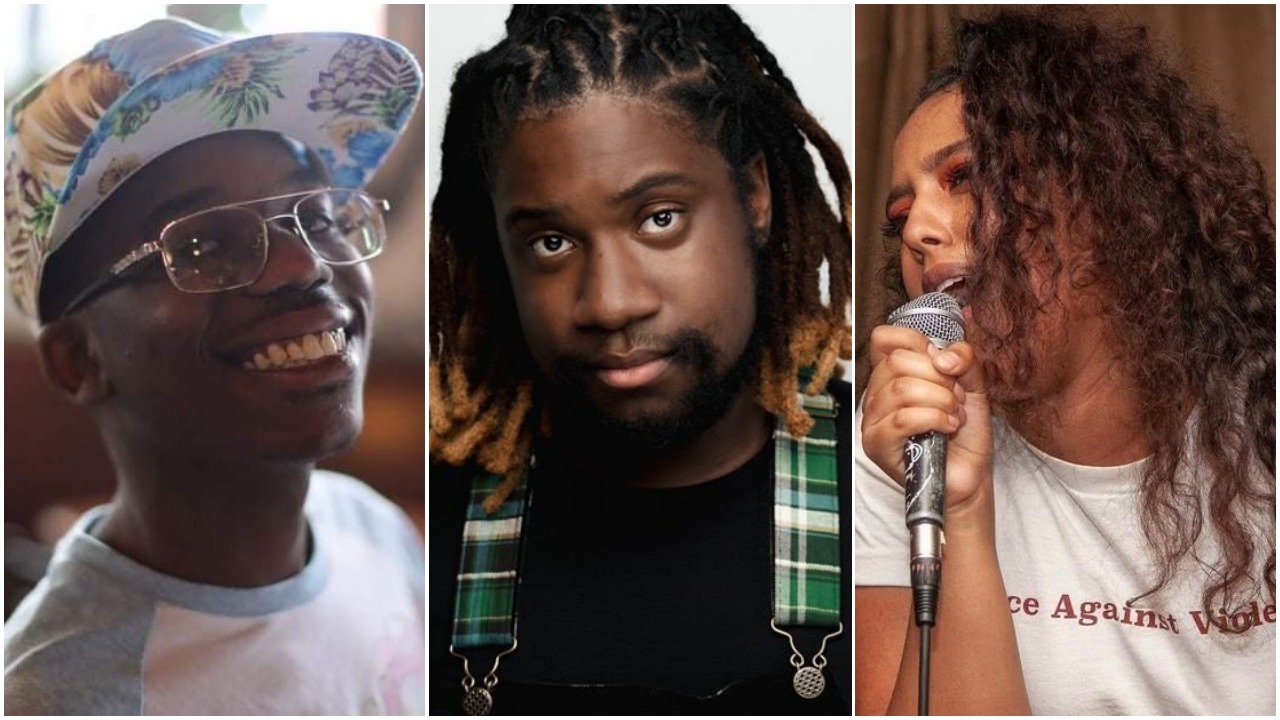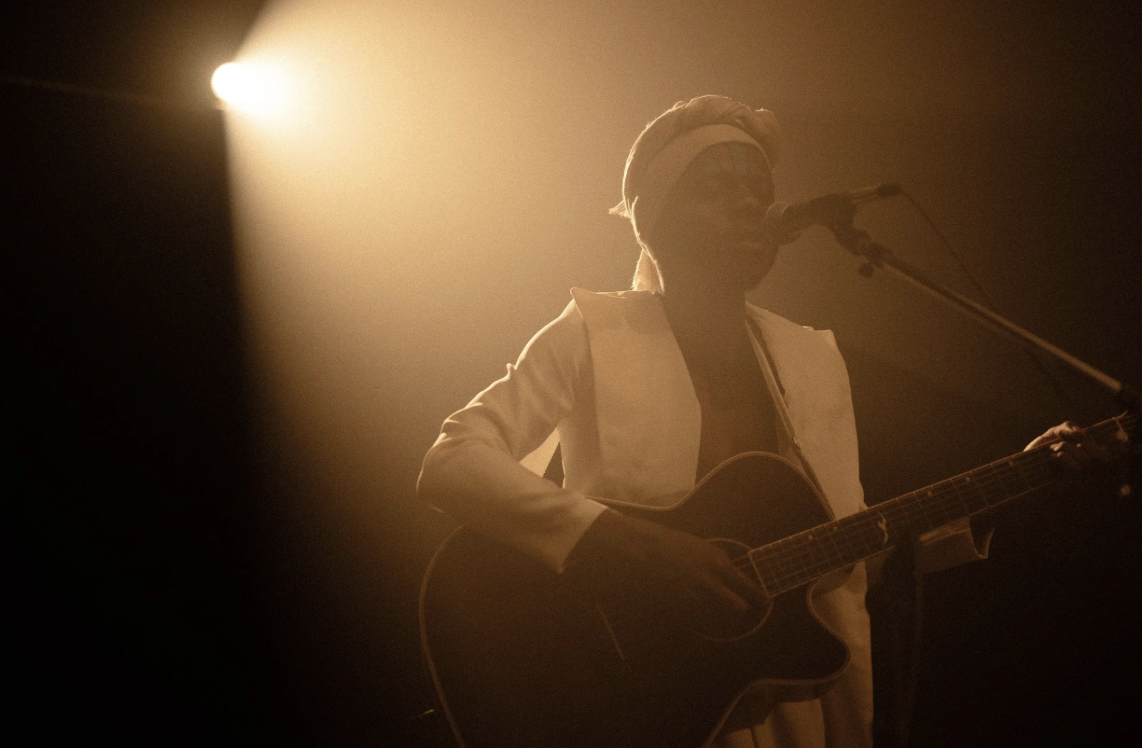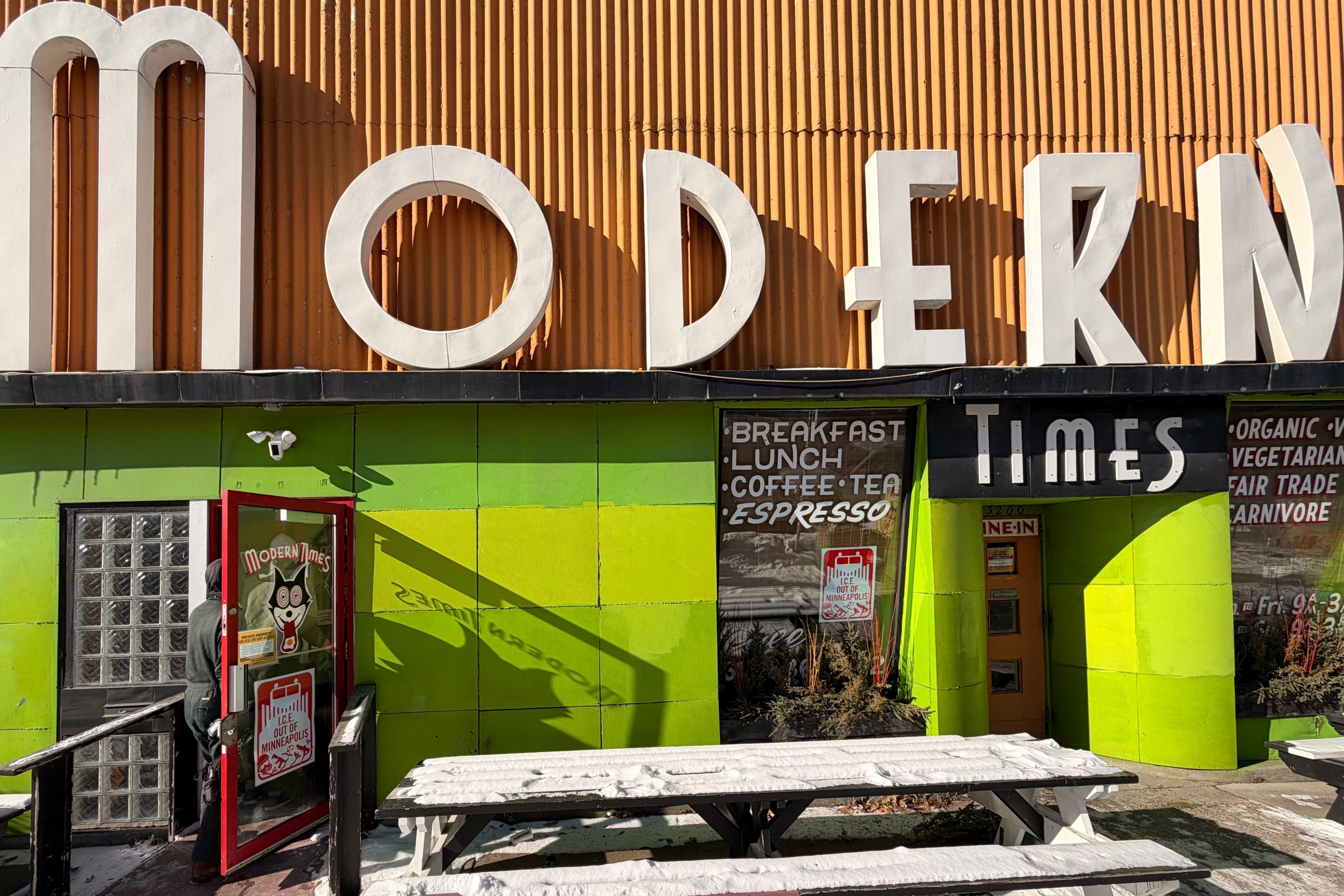Joy can be hard to come by these days. With the Derek Chauvin trial in the spring and the rising number of COVID-19 cases due to the Delta variant this summer, 2021 has been a year of tension and retraumatization for many. Art and creativity have never been more necessary. Here, in their own words, six Black artists explain the ways they have found to express themselves and give light to others in these often dark times.
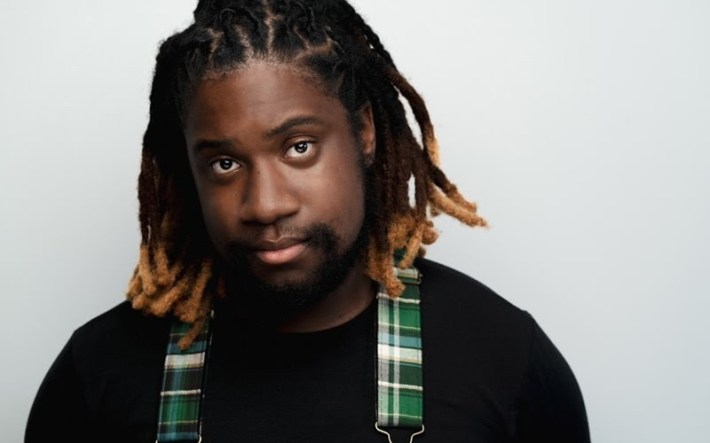
Denzel Belin (he/him) is an actor and improv coach who has worked with Brave New Workshop and Blackout Improv, and who writes for the Nordly and AWF Magazine.
I’m a multi-hyphenated artist, a Swiss army knife of comedy. Fell in love with musical theater in the 10th grade and just wanted more. I don't draw, so this is my thing. But within doin’ it I want to provide representation that is more than “Black man goes to prison” or “Black man gets shot.”
[During the lockdown] I did virtual improv with people across the country and internationally, including panels, classes, and performances for theaters based in San Francisco, Atlanta, London, and Germany. While it’s not the same energy or practice as in-person improv, the ability to unite people across the world with relative ease was amazing for connecting the global improv world together.
I leaned on comedy and joy a lot during this pandemic. I’ve found a lot of joy through travel. Went to Chicago, New York, and visited my mom in Seattle. My mother is from the South, and people bash the South a lot, but I feel the hardest place to be a Black person in America is Minnesota. Minnesota culture doesn't teach people to talk about their feelings so they just end up yelling them to each other.
I feel as though we’re on the verge of something [in the Twin Cities]. I’m not entirely sure what it is, but I can feel it. Whatever the case, I’m not living under the disillusion that this is a perfect place. Some Minnesotans will tell you they have all the friends they need. I hope I’m never done making friends. I hope I’m never done learning.
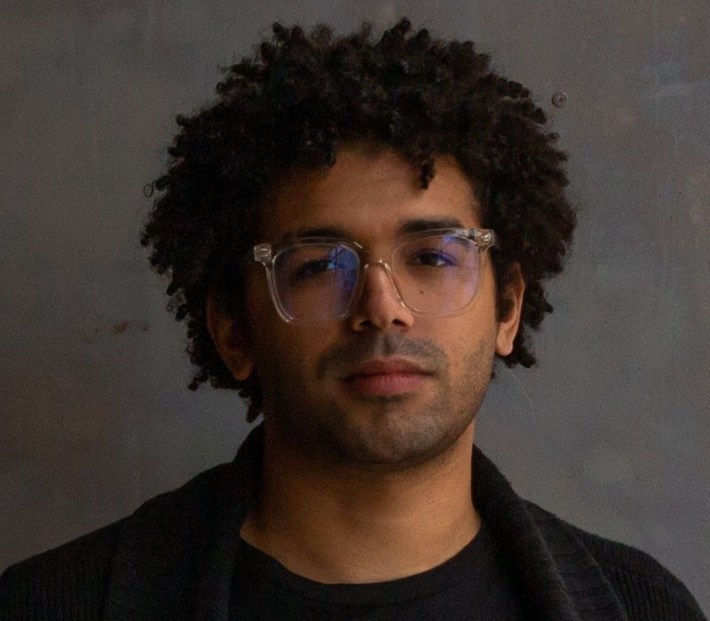
Ty Chapman (he/him) is a poet, author, and puppeteer. His book Sarah Rising is set for release in 2022.
I’m a creative who gets bored easy. A lot of my work touches on humanity—it tries to reach out to children and their trusted adults in hopes that there can be room for dialogue.
It’s definitely harder to write happier stuff [these days]—been writing more poetry. I do think though in times like this there should be room for sad stuff, but what's needed is the joyful, hopeful works. Been doin’ some puppetry shows and that felt good. I wrote a few books.
It's been hard to find joy [this summer], but I have been trying to seek it out and be intentional in finding joy. There’s some anxiety around some of the puppetry performances we’ve been doing around these groups of people we don't know. But the fun thing that has brought me joy has been interacting with the kids who see the shows and seeing them find joy and magic. That's given me a little bit of hope.
[Here in the Twin Cities] I’m reminded of what happens after a wildfire. I feel like we're coming into a time where new stuff is gonna pop up. New spaces. New things are gonna start happening here. I work here, but maybe not forever. I won’t say the thought of leaving hasn't seemed appealing, but I’ll live here as long as there is work to be had. It's a good lil city. A fucked up lil city, but a good one.
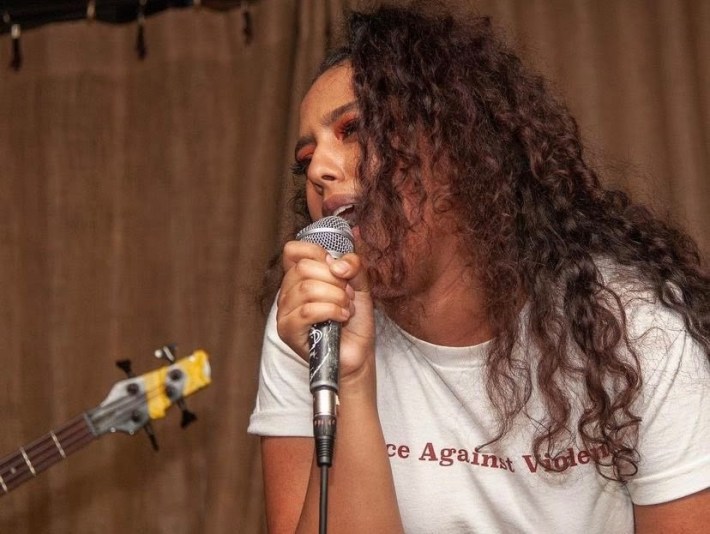
Sagal Lina (they/she) is a student and the lead singer in Twin Cities hardcore band Blue Venus.
My biggest goal is to make the scene look back at itself and ask why it does what it does and why it platforms who it platforms.
I’m a Black girl in the Minneapolis punk scene. This stuff isn't made for me 'cause the scene is so white. Going to a lot of house shows where there’s Trump-supporting white boys at the hardcore show, I get a sense of maybe people like me don’t wanna go to this ’cause it’s white as fuck, and maybe that’ll change if there were more people like me. Black girls after shows will come up to me and say, “I wanna start a band,” and that means the world.
The hardest part [of the pandemic] was not being able to go to shows and being on hiatus. Our shows are so full of energy, it's hard to get that same feeling out of a recording.
It’s been a really good summer. Been having small get-togethers with friends, saw Gully Boys at Fine Line and they killed it! We performed again too, and [local band] Allergen was good. It’s been good to have time to see shows and focus on my friends and my partner.
For the Cities, I can feel a lot of good formative things. I see a lot more queer and trans artists coming. We loud and we out here. We been here. We finna stay here. The momentum is still here.

Khadijah Cooper (she/her) is a comedian and sex health educator.
I'm a mother and a caregiver of my community. Working at a nonprofit, social reproductive rights are very important to me. Comedy as well. Comedy is an outlet for me, a window into my life.
As a Black woman doin’ sex ed, it’s important to educate my community on homophobia, where it stems from in this community, and debunk harmful ideas and educate folks. It's important for young Black and Brown kids to know they can do this as a career ’cause this field can be very white, which creates a lack of representation and missed opportunities to educate the youth. There aren't that many Black teachers but there are a ton of Black disciplinarians, and that needs to change.
For comedy when I entered it I thought I was supposed to be this Def Comedy Jam-type of comic, but I’ve learned that authenticity gets you far and it's been great to be able to be myself. A college friend said that I am who I am on stage and off.
Staying trauma-informed is crucial to the work I do. These times have also given me time to look at my area, noticing I’m the only Black person on this block. Who are my neighbors? And with comedy I’m not really a political or woke comic, but when I do get political it's good and authentic and coming from a personal place.
I'm vaccinated, and being outside and camping with friends [this summer] has given me joy. My daughter feeling normalcy felt good. I’ve found an amazing partner as well. I can kinda feel the joy slipping away—I feel like I’m preparing for another shutdown or isolation—but I'm just practicing gratitude.
I hope people remain rowdy [in the Twin Cities]. I’ve seen trends of outrage come and then simmer down, but people gotta continue to be outraged. I also wanna see more Black people healing. I’d love to see more Black healers. I just wanna see everything Black. Black business. Black entertainers. When the most marginalized group does well everybody does well.
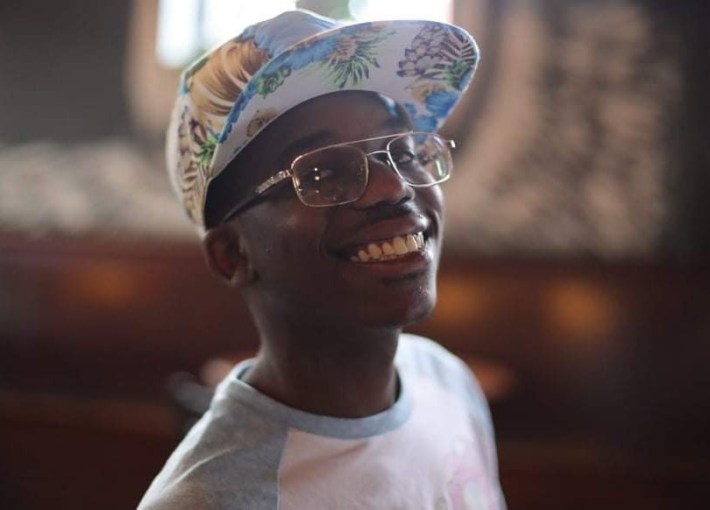
DJ Nanobyte, aka Robert E. Jackson (he/him), is a DJ, producer, and member of rock band Black Wine.
I'm a creative! I'm a creative in the sense that I love expression and art. I’ve done acting, have been making beats since I was 12, I produce. But I love all art. I’m a DJ, in a band, I’m a producer. I try and find things where I can be me.
Inspiration breeds inspiration. I'm inspired by the people around me, my family, and my friends, sometimes whether I like it or not. Something that keeps me going is that I lost my biological mom when I was 12, and I just lost a father figure, Diesel. One of the last things he said to me before he died was, “Keep going.” I feel like if I stop now I’m letting down a lot of people that are here and no longer here. My people keep me inspired.
At the beginning of the pandemic I had gotten super sick, and I was staying with a friend who was also sick. I helped with her recovery process and I realized that not having an outlet can be numbing, it was hurting me both physically and mentally. I actually had one of the very first comeback shows when things opened up a bit and I remember people were asking me like, “Fam are you sure about this?” and I had to tell them like, ‘Yooo I need this!’ Especially as a Black artist. Art is a trauma response. Music, comedy, museums—a reason why a lot of these indoor spaces popped off how they did was because people needed an outlet for this during these times, ’cause we’re all just dealing with this trauma.
DJ stuff’s been goin' well. My band Black Wine has been going great. I'm nervous that we’ll have to quarantine again and things might shut down. But till then these shows gonna keep popping off.
It’s been one of the best summers of my life. I’m healthier than I’ve ever been. I’m making more music than I’ve ever made. My mental [health] has been better. I’m eating my veggies, haha. I still haven't processed 2020, or even 2021 to be real. But I’m kinda just going with the flow, living in the moment, but not in a blind way.
I got a Halloween show planned, starting up African drum sessions. I won't stop unless the world makes me stop, but I’m trying to be cognizant of the fact that I want to keep at this if I can. But I think it's looking bright. I like winter. I just need a car.
Tate (they/them) is a musician, labor organizer, and lead singer of Mrs. Pinky & The Great Fox.
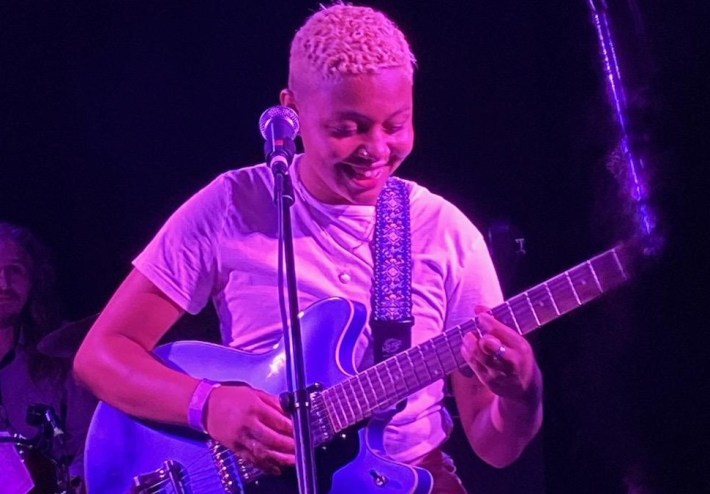
I’m a musician. I’m an organizer for a workers center called CTUL [Centro de Trabajadores Unidos en la Lucha], a pet owner. I have a dog and a cat. But mainly I’m a musician here in the Twin Cities.
I’m inspired by a lot of things but people the most, and how different and similar we are, and how we’re all just trying to not die. Personally I try and be my most authentic self I can be within all of this.
The uprising gave me time to reflect on who I was playing with and who I was performing for. I took a break for a bit to reflect on this and realized I wanted to play with more people of color, or I at least wanna be in a band where the majority is that way. It's been difficult. I did a show with 26 Bats! a few weeks ago with a new lineup and we had only played for two weeks. But last year gave me time to think of who I'm doing this for and how is it going to be received.
I’m not gonna lie, I spent most of the summer protesting. I don't think much has changed from last year as the police have continued to kill people with the murders of Daunte Wright and Winston Smith. I found myself protesting, and it's been an exhausting summer. I feel like some folks stopped because they say they care but don’t. The Twin Cities is a place where people say they care about diversity but only until it's inconvenient for them. I think it's the same way with how people are handling COVID—they took it seriously until they didn't wanna be inside anymore.
There were some good moments though. I did some solo shows, and I have a good partner and a few good friends. I spent a lot of time focusing on existing and helping out my community.
There’s gonna be more labor movements happening in the Twin Cities. Lots of Black artists wanna create but in safer spaces. I see more of those spaces coming and the ones that are here expanding. I think the Twin Cities is trying to hold people accountable, and I like it here. I've grown a lot here, but my time here might be done. People ride high for this place but when it has its issues it gets harder to stand. I think we're gonna look at what's happening here and ask what's benefitting us—a lot of shit’s not getting together. I think the Twin Cities needs to get it together.
